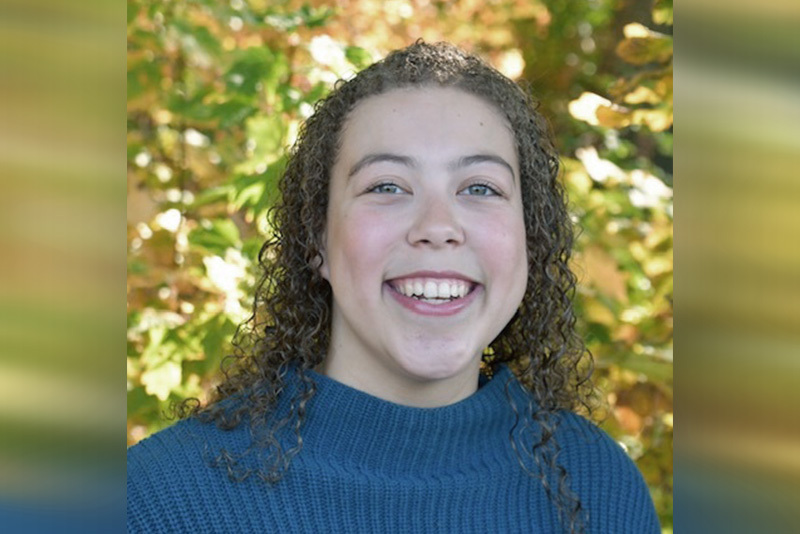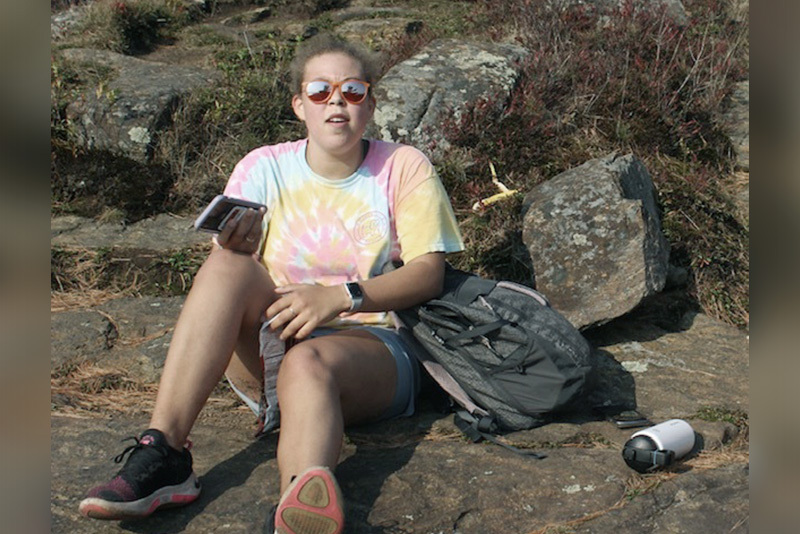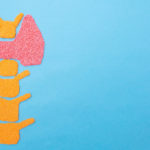‘A 100 percent difference’: Treatment for Graves’ disease helps Emily enjoy college

For Emily Stein, the gift of an Apple Watch led to an unexpected diagnosis. Along with telling the time, delivering texts, and playing music, the gadget tracked her heart rate — and confirmed what the teenager already suspected. “I felt like my heart was always racing,” she remembers. “That was the first sign that something was wrong.”
When Emily started losing weight, had trouble sleeping, and was “more hyper than usual,” her mother knew it was time for her to see a doctor. During a visit with her local cardiologist, she learned that the problem was likely not with her heart at all. “They took one look at me and said I probably had Graves’ disease,”

Learning about Graves’ disease
The most common cause of hyperthyroidism in children and adolescents, Graves’ disease is an autoimmune disorder in which the body produces thyroid-stimulating antibodies that in turn stimulate the thyroid gland to produce too much thyroid hormone. Like most teens — and a fair number of adults — Emily had never heard of the condition. “I didn’t even realize my thyroid gland was a thing,” she admits.
But she soon learned more about her thyroid than she ever expected. Her physician referred her to Dr. Jessica Smith, associate medical director of the Thyroid Center at Boston Children’s Hospital. Dr. Smith confirmed the diagnosis and explained that thyroid hormones can affect almost every organ in the body. When the thyroid gland is out of whack, that can throw the rest of the body off kilter too, resulting in symptoms like the ones Emily was experiencing.

‘A 100 percent difference’
Dr. Smith also explained to Emily that medication, specifically methimazole, would be the first approach to help get the problem under control. Anti-thyroid medication works by blocking the thyroid gland’s ability to make thyroid hormone but doesn’t damage the thyroid gland itself. “She wanted to get me to a baseline of ‘normal’ where I didn’t feel like I was going 200 miles an hour,” says Emily. The ultimate goal was for Emily to go into remission by eventually weaning off the medication without spikes in thyroid activity.
More than a year after she started on medication, Emily says the difference in her health has been dramatic — “a 100 percent difference.” Where once she ran up and down the whole soccer field, scoring goals, she’s dominating a smaller area as goalie and has also taken up lacrosse. “I’m still hyper, but some of that’s just my personality,” she laughs.

Radioactive iodine — and plans for the future
Although she’s responded well to medication, Emily hasn’t yet been able to wean off of it. Now a college freshman at Union College, she plans to undergo treatment with radioactive iodine this summer. This therapy, given as a capsule or liquid, uses the thyroid gland’s natural need for iodine to treat overactive thyroid cells. The radioactive iodine is absorbed by and permanently destroys the thyroid gland, but doesn’t affect other parts of the body. Once the thyroid gland is destroyed, Emily will need to take thyroid hormone medication — such as levothyroxine — for life.
For her, it’s a step she hopes will allow her to enjoy her college years even more without having to think quite so much about her thyroid. When she’s not hanging out with friends and skateboarding, she’s studying to achieve her ultimate goal: becoming a physician. “It’s something I’ve always wanted,” she says. “But this experience has really cemented that this is what I want to do.
Learn more about the Thyroid Center.
Related Posts :
-

Experience matters: For Curtis's family, choosing a thyroid surgeon was simple
For many parents, being told their child needs a total thyroidectomy — surgical removal of the entire thyroid gland — comes ...
-

Maya is moving ahead after thyroid cancer
For Maya Rao, 15, a playful accident last Thanksgiving led to the discovery of thyroid cancer. As she and her older ...
-

From Alabama for answers: Adella's thyroid journey
She may only be 12 years old, but Adella Jackson has already expanded her family’s perspective. “She’s broadened our ...
-

Study: Tool for thyroid nodule evaluation misses thyroid cancers in children
A thyroid nodule is a solid or fluid-filled lump that forms within the thyroid gland. Most thyroid nodules that develop ...





